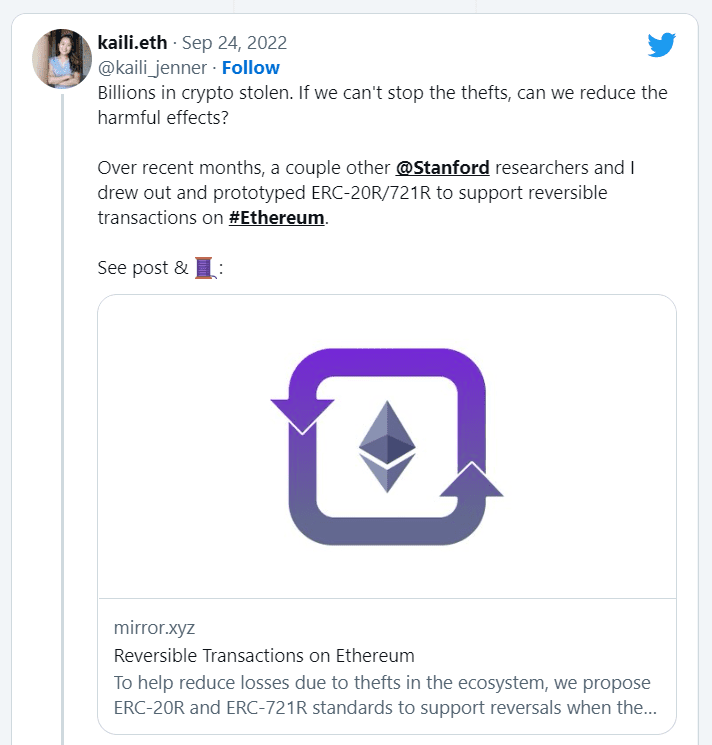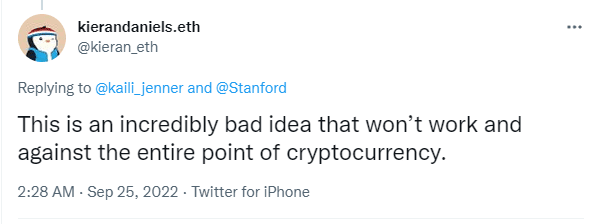Stanford researchers offer reversible tokens

Stanford researchers Kaili Wang, Qinchen Wang, and Dan Boneh have proposed the idea of creating Ethereum-based reversible token standards called ERC-20R and ERC-721R.
They propose to extend the capabilities of the existing ERC20 and ERC721 standards by adding a reversing fraudulent transactions feature. According to the researchers, it will be possible to return tokens stolen by hackers thanks to the new invention.
A token standard is a set of rules that a smart contract must follow while creating an asset so that it is compatible with other tokens of this format and decentralized applications.

ERC20R and ERC721R combine smart contracts for the token itself and its management.
According to the creators, a managing smart contract should be controlled by "decentralized judges" who will decide whether to block a suspicious transaction. For example, a victim whose funds have been stolen can submit a freeze request to the managing smart contract by providing the relevant evidence.
At the same time, the victim must pay a “lawsuit” fee and provide remuneration to decentralized judges. It is assumed that for an additional fee it would also be possible to increase the priority of cases. If a majority of the quorum votes in favor of the victim, the funds will be frozen and returned.
“If assets are stolen, they rarely simply sit in one place. Fraudsters move tokens from one wallet to another. They can even monitor the mempool and move the assets in a front-running transaction if they see a freeze request incoming. The algorithm we developed avoids this scenario by conducting the entire freeze (and its calculations) on-chain in one single transaction, so that the attacker can’t “outrun” the freeze,” writes Kaili Wang.
Criticism of the crypto community
The idea was met negatively by the cryptocurrency environment , despite the good intention to help reduce investor losses. In particular, people believe that the so-called “reversible tokens” do not meet the blockchain concept.
“This is an incredibly bad idea that won't work and against the entire point of cryptocurrency.” tweeted Kieran Daniels of the DeFi project Streams.

Argent, the popular mobile crypto wallet, said that other mechanisms like multi-signature wallets and social recovery can help fix this problem.
Besides clashing crypto’s ethos, token reversibility could make it challenging to integrate with decentralized applications.
No contracts would accept these tokens in the first place due to the complexity of handling chains of reversals,noted Matthew Di Ferrante, CEO of ZkLabs.
Roman Semenov, co-founder of Tornado Cash, has also raised similar concerns surrounding transaction reversibility and interoperability with decentralized applications.
The crypto community believes that it takes a long time to come up with a really thoughtful tool that protects from the hacking of wallets. And if that appears, then Ethereum reversible tokens will definitely not be such a solution.
Recommended

